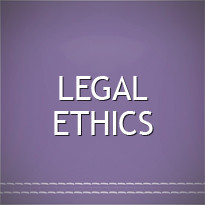A.C. No. 288-J – 156 Phil. 402 – 57 SCRA 403 – Legal Ethics – Lawyer owes fidelity to the courts
Judicial Ethics – Errors in Judgments – Judges Not Liable If Malice/Gross Ignorance is Absent
Atty. Gaudencio Urbina and Atty. Vedasto Gesmundo lost a case filed in the sala of Judge Maximo Maceren. The two lawyers then filed a criminal case against Judge Maceren for knowingly rendering an unjust judgment. The fiscal dismissed the case as he deemed the action to be inappropriate considering that the judgment issued by Maceren at that time was pending appeal. Allegedly however, prior to dismissal by the fiscal, Urbina received a phone call from another lawyer (one Atty. Esguerra) who threatened him that if he shall not withdraw the criminal case he filed against Maceren, he will be killed; that said threat was made by Judge Maceren through Atty. Esguerra.
In his comment, Judge Maceren stated that he issued the judgment being complained of in good faith and he knew that his judgment is not unjust and that he made no threats against Urbina for it would be useless to threaten him considering that if Urbina did withdraw, there is still Atty. Gesmundo who can continue the complaint.
ISSUE: Whether or not Urbina’s suit should prosper.
HELD: No. The Supreme Court gave credence to Maceren’s statement as opposed to Urbina’s bare allegations which were not supported by evidence. The Supreme Court also condemned Urbina’s use of disrespectful language. A lawyer owes fidelity to the courts as well as to his clients and that the filing on behalf of disgruntled litigants of unfounded or frivolous charges against inferior court judges and the use of offensive and intemperate language as a means of harassing judges whose decisions have not been to their liking (irrespective of the law and jurisprudence on the matter) will subject said lawyer to appropriate disciplinary action as an officer of the Court. This only unduly burdens the courts.
On the matter of Maceren’s judgment, the Supreme Court stated that judges will not be held administratively liable for mere errors of judgment in their rulings or decisions absent a showing of malice or gross ignorance on their part because to hold a judge administratively accountable for every erroneous ruling or decision he renders, assuming that he has erred, would be nothing short of harassment and would make his position unbearable.


